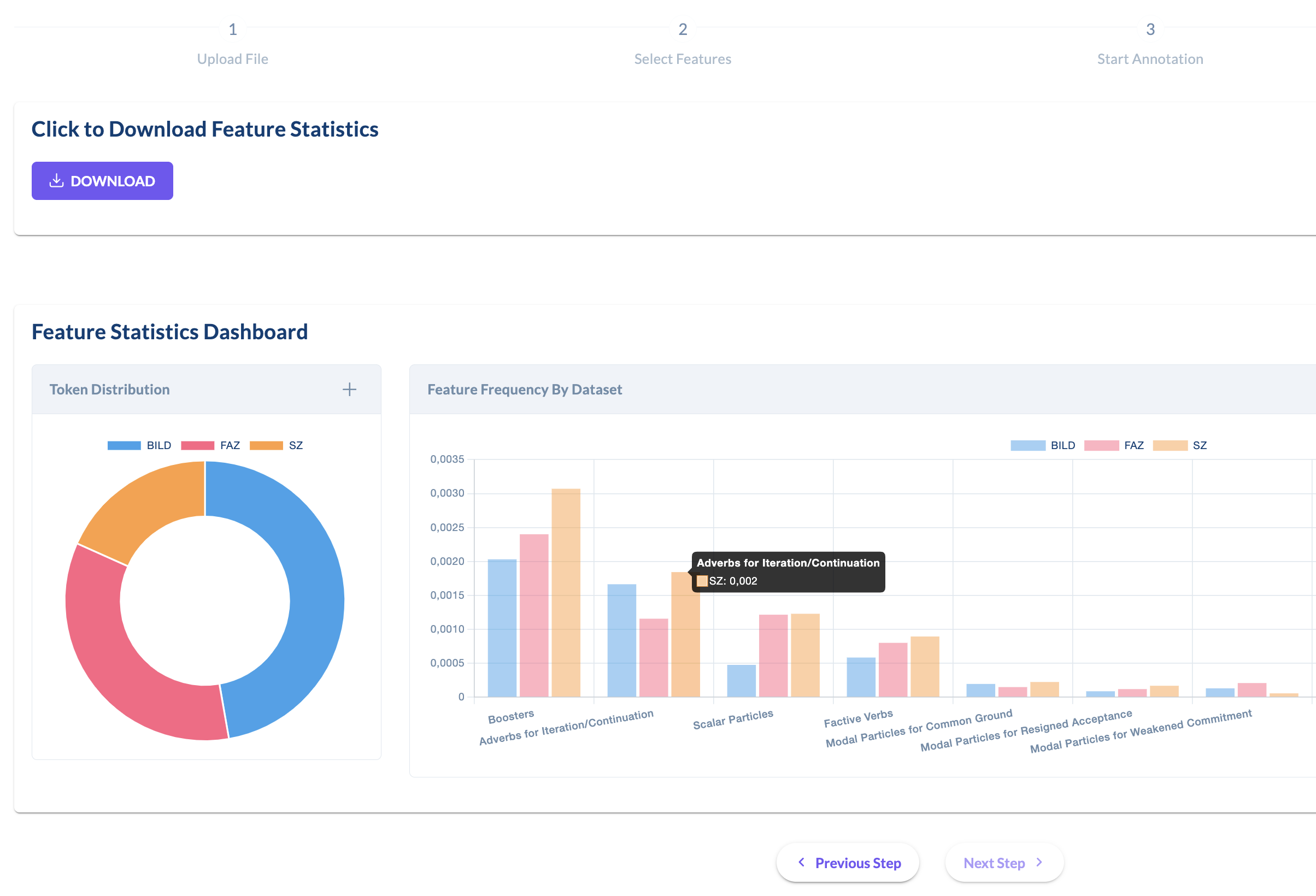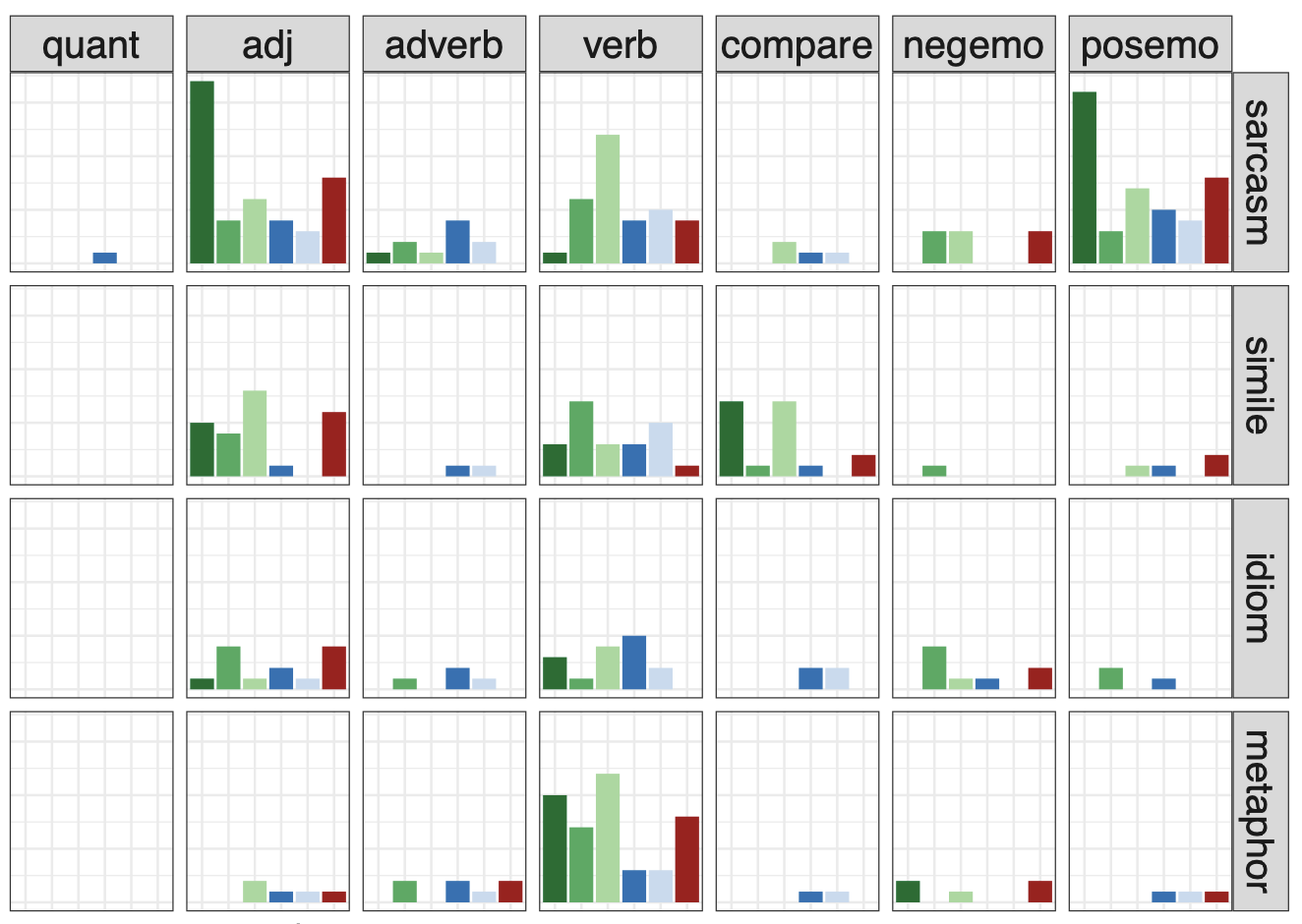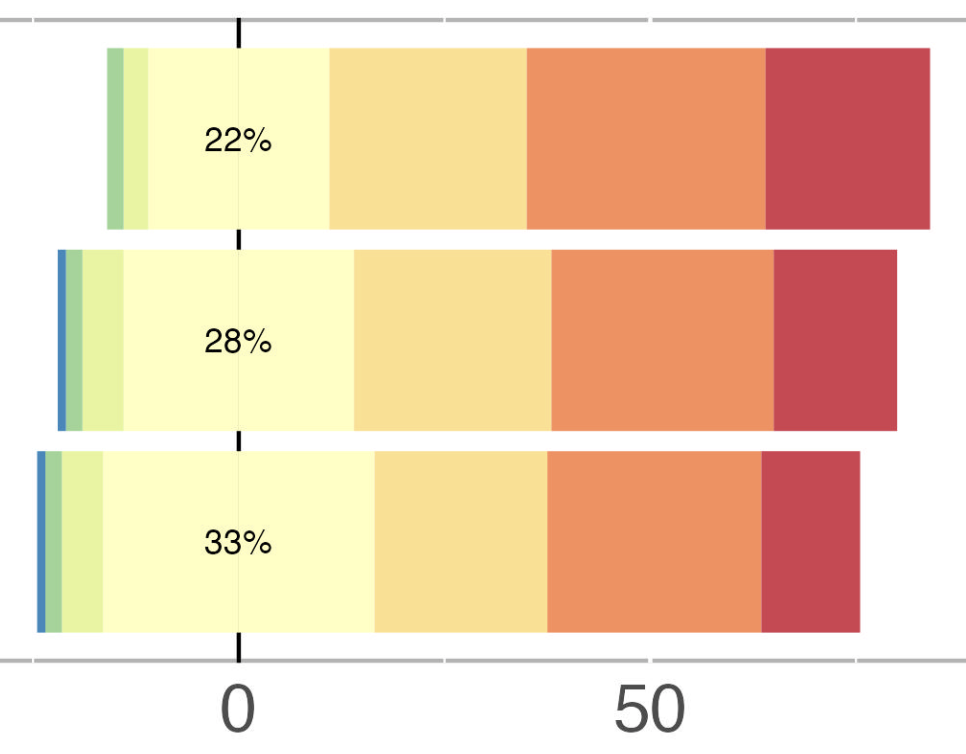Selected Projects

Web App Rhetorical Framing Explorator
Earlier NLP studies on framing in journalistic texts often oversimplify framing as a mere matter of topic coverage. However, framing is not about what is said, but how things are said. For instance, these two sentences convey very different attitudes: "The ruling parties do not understand what family means" vs. "The ruling parties do not even understand what family means".
However, such nuanced language usage is heavily understudied in NLP. This is partially due to the reason that NLP studies increasingly use black-box models (e.g., LLMs) that do not allow a drilling down into the effects of linguistically meaningful components. I developed a web App which facilitates the exploration of such subtle linguistic aspects of framing.
However, such nuanced language usage is heavily understudied in NLP. This is partially due to the reason that NLP studies increasingly use black-box models (e.g., LLMs) that do not allow a drilling down into the effects of linguistically meaningful components. I developed a web App which facilitates the exploration of such subtle linguistic aspects of framing.
Tags:











Examining Behaviors of Large Language Models
LLMs are powerful and yield groundbreaking results, but model explainability is also crucial for many use cases: what have they actually learned from the training data and why do they come to a certain decision? For text data, this is especially relevant for complex tasks such as the automated detection of figurative language usage, e.g., sarcasm or metaphor.
My colleagues and I probe the performance of diverse black-box LLMs and compare them with white-box (explainable) models on the task of figurative language classification. Fun fact: for this probing task, we found that black-box models are not that unexplainable, whereas white-box models are sometimes not really human-interpretable.
My colleagues and I probe the performance of diverse black-box LLMs and compare them with white-box (explainable) models on the task of figurative language classification. Fun fact: for this probing task, we found that black-box models are not that unexplainable, whereas white-box models are sometimes not really human-interpretable.
Tags:







Large-Scale Experiments on Compound Neologisms
This project is more of a cognitive science (psycholinguistics) nature. The German language is rich of compounds, and new compounds can always be derivated. In journalism, sometimes authors invent compounds to implicitly convey biased attitudes.
For instance, what impact on readers' perceptions does it make to call an intern who wears a hijab due to her religious background as "the hijab-intern" (German: Kopftuchpraktikantin) instead of "the intern who wears a hijab" (German: kopftuchtragende Praktikantin)? In collaboration with the University of Tübingen, I designed experiments to unravel this.
For instance, what impact on readers' perceptions does it make to call an intern who wears a hijab due to her religious background as "the hijab-intern" (German: Kopftuchpraktikantin) instead of "the intern who wears a hijab" (German: kopftuchtragende Praktikantin)? In collaboration with the University of Tübingen, I designed experiments to unravel this.
Tags:





